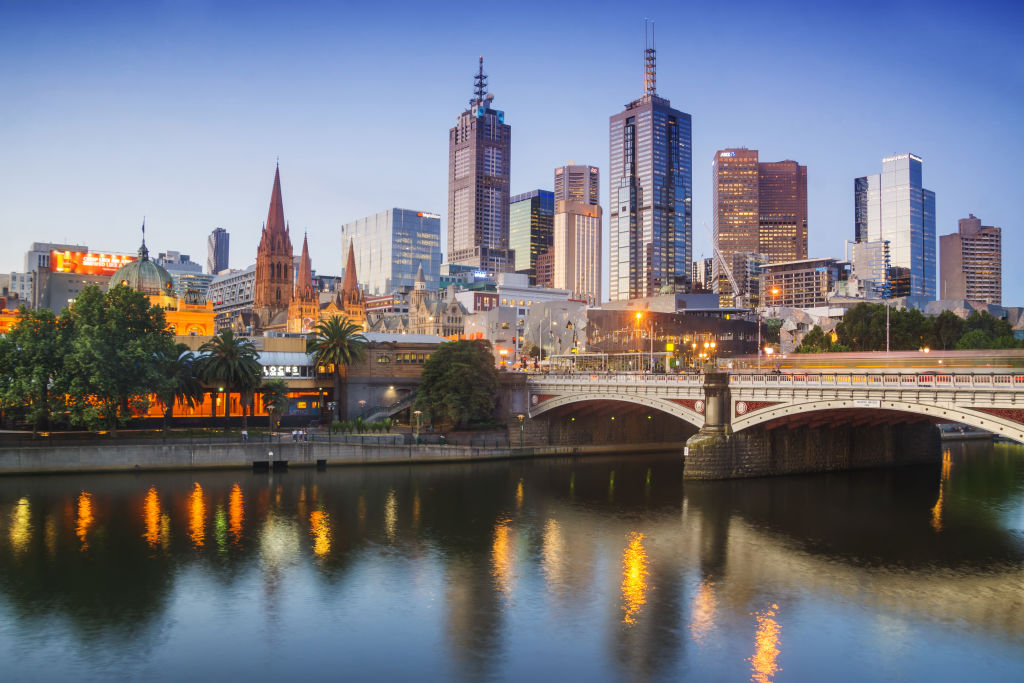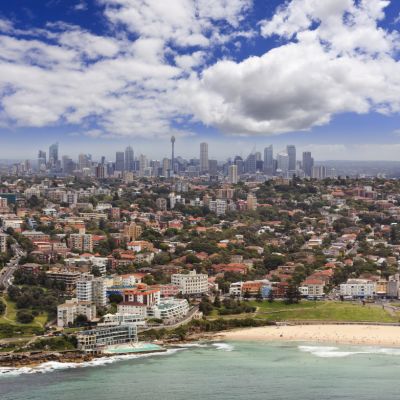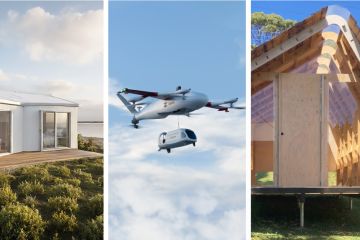International property buyers keen to make Australia home amid COVID-19 pandemic

International residents are keen to move to Australia and are making plans to move to major capital cities here, even though it may take more than a year for them to get into the country due to closed borders, agents say.
The keen interest comes despite northern hemisphere countries reaching high vaccination rates and reopening their economies while millions of Australians have been living under lockdown to stamp out early stage COVID-19 outbreaks.
Australia is still seen as an attractive destination, with the latest Foreign Investment Review Board report finding 7056 residential real estate applications were approved in the financial year of 2019-2020.
This was a drop in approvals of 455 from the year before, but the value of investment totalled $17.1 billion, an increase of $2.3 billion from the prior year.
A year later, interest is strong. Sydney Sotheby’s International Realty director Michael Pallier said he was up early every day, answering queries about properties from overseas-based buyers.
“It’s been great and it’s kept me up between 2am and 4 am every morning,” Mr Pallier said. “A lot of my clients, their family members are already here or they have children studying here, and they dream of having a residence here and coming [to Australia].
“A lot of expats still want to come back, too.”
Along the Gold Coast and other popular holiday spots close to Brisbane, which have also seen a rush of interstate buyers looking for a better lifestyle during the pandemic, foreign buyers have been looking at prestige properties.
Kollosche managing director Michael Kollosche said he was fielding many queries from overseas buyers, including expats.
“It comes in waves and it’s driven by certain types of stock,” Mr Kollosche said. “If we are launching a property priced between $5 million and $15 million, they are getting a lot of strong inquiry from overseas buyers.”
Domain senior research analyst Nicola Powell said the latest rise in international investment was due to including Australia’s booming house prices and being seen as relatively safe from the coronavirus pandemic.
Australia’s house prices rose by 5.7 per cent in the March quarter, with a record high median of $899,509 across all capital cities, seeing some unexpected price gains after the coronavirus hit.
“That rise in foreign investment spending was likely due to some extraordinary growth in prices compared to 2018-2019 when the property market was in a downturn,” Dr Powell said.
“But also the types of houses being purchased by foreign buyers are bigger and more elite.”
Dr Powell said people were becoming more relaxed about taking a risk and buying a property in Australia sight unseen, with the chance to move to a country that had far fewer cases of coronavirus.
“Australia is very attractive for people looking to relocate or even students preparing to study when you throw in the health dynamic,” she said.
While foreign property buyers are paying more for properties in Australia, they are also covering the extra costs of stamp duty and other taxes charged to buyers who are not Australian citizens.
The FIRB data showed the number of properties sitting vacant for more than six months in a 12-month period had almost doubled from 118 properties in 2018-19 to 231 last year.
This meant buyers would be faced with vacancy fees which in 2019-2020 totalled $3.7 million, the report showed.
“A lot of these homes that are vacant were purchased before COVID-19 hit and before we closed the borders,” Belle Property Balwyn director and auctioneer Robert Ding said. “They’re now caught overseas and can’t get back so there’s little they can do.”
Some buyers were looking to get around such fees, by gaining their permanent residency before buying in Australia.
Some had been renting in Melbourne for four to five years, gaining their permanent residency and then buying a property without the need for FIRB approval, Mr Ding said.
“Lots of new migrants will rent first and then buy once they have their permanent residency because they save on additional stamp duty,” he said.
We recommend
We thought you might like
States
Capital Cities
Capital Cities - Rentals
Popular Areas
Allhomes
More








